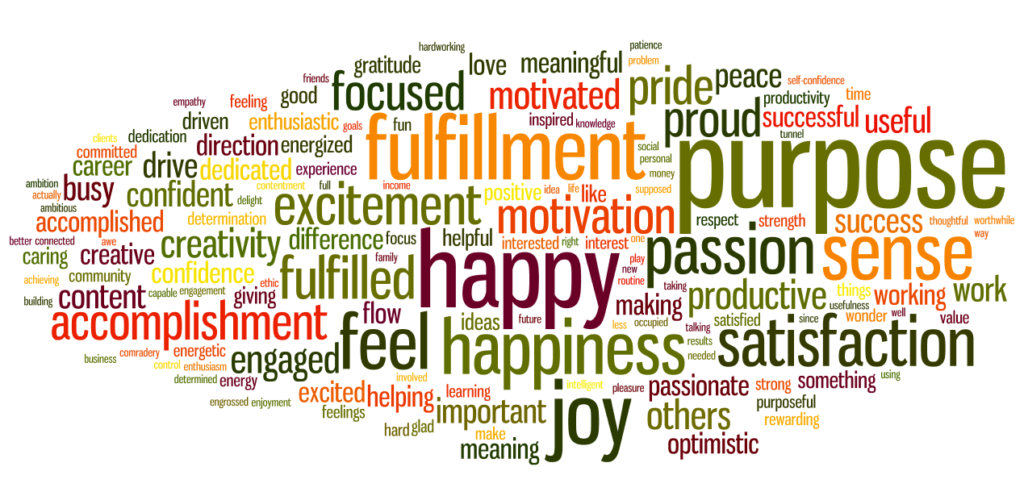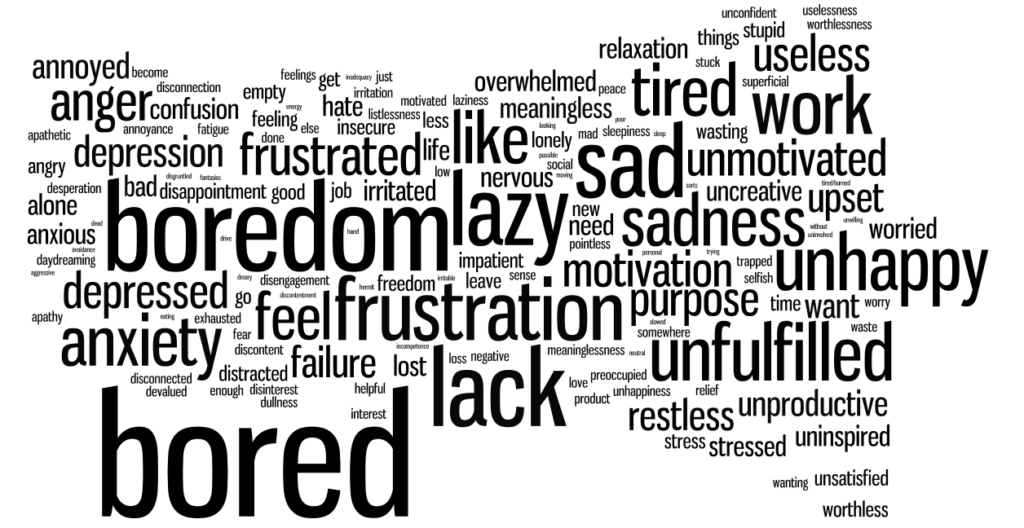Did you know that most of us will spend about one-third of our lives working? That’s 90,000 hours on average. Yet too often, people treat work as a necessary evil — something we have to suffer through in order to live the other two-thirds of our lives. Once we recognize the huge proportion of our lives that working time represents — literally half our waking hours for most of our lives — we more easily see how critical it is to cultivate connection to work, as well.
Connection at work tends to look and feel a little different from the connection we feel in other areas of life, though there are certainly commonalities (joy, happiness, love, peace, etc.). Our Connection Lab did a study asking people what they feel when they are connected to their work, and created a word cloud illustrating the recurring themes (the bigger the word, the more often it was mentioned).

You’ll see that the most common word they used to describe connected work is PURPOSE. For many people, work provides them with the sense that they have a purpose — a goal they are working towards that has value, even if only in their eyes. It’s well established in the scientific literature that living with a high level of purpose tends to correlate with high levels of satisfaction and well-being.
Any job or role can be a purpose or calling, depending on how you view it. Meaning is entirely subjective, and if we look hard enough, we can find meaning in even the most mundane or unpleasant tasks. The key is figuring out how your role helps to advance something that you value — that might be helping others, maintaining order, preventing accidents, sparking positivity, supporting your family, or something else. Work is not the only realm of life where we can find our purpose, of course, but for many it does offer a cause that they feel good about supporting with their labor. A sense of FULFILLMENT, SATISFACTION, ACCOMPLISHMENT, and that you’re PRODUCTIVE all follow, as the results show.
But what about disconnection to work? We asked the same research subjects about their experiences feeling disconnected from their work, and charted the results in another word cloud:

As you see from the graphic, the most common way disconnnection from work manifests itself is BOREDOM — feeling bored. Frustration, anxiety, sadness, unhappiness, and unfulfilled feelings follow. The good news, though, is that boredom is really just the absence of engagement. If we resolve to, we can redirect our attention from that void to something that we do find worthwhile. Again, this is subjective and each person will have their own set of ideas or topics that light them up again. It might be redirecting your thoughts to the value of your work in the bigger picture, or it might be thinking about something else entirely — everyone is different, and every situation, too.
The key is always to tap into what’s meaningful for you, and make the effort to restore connection when you lose it. Half our waking hours is far too long to waste.

Leave a Reply